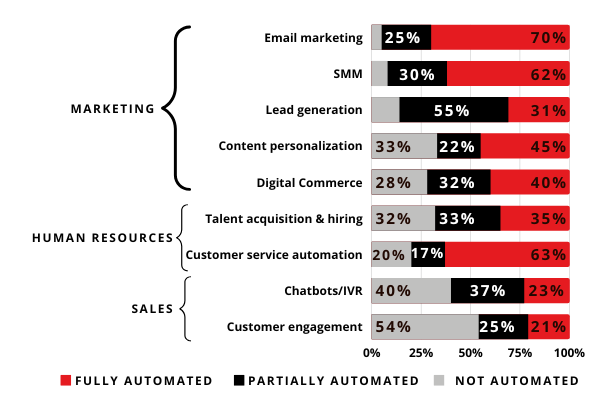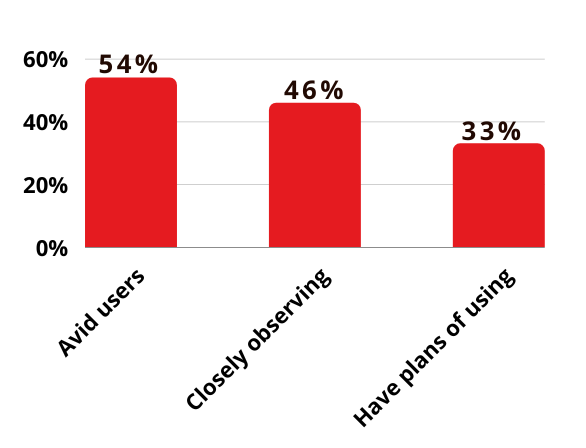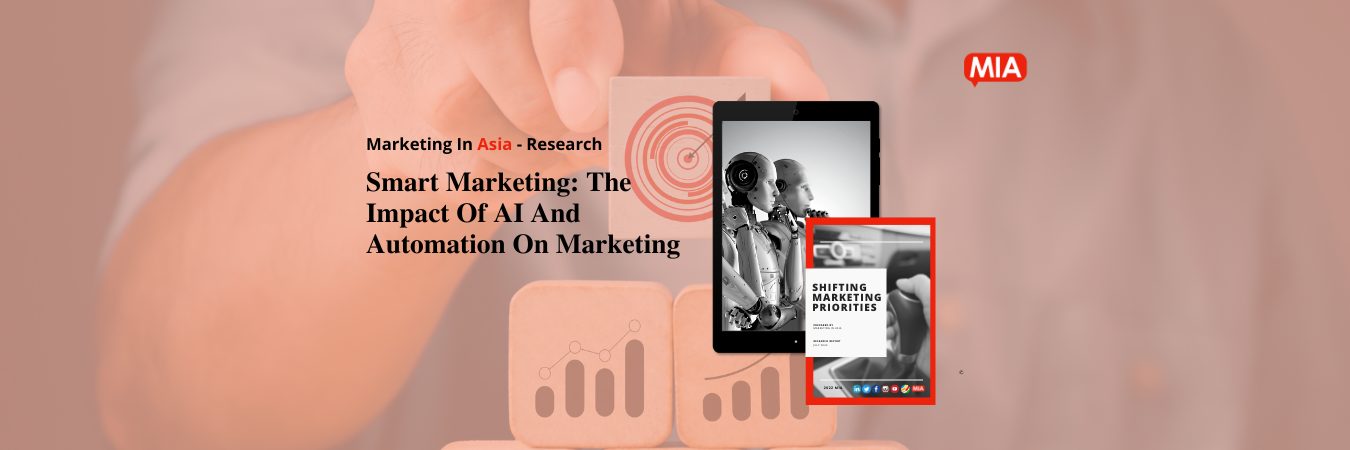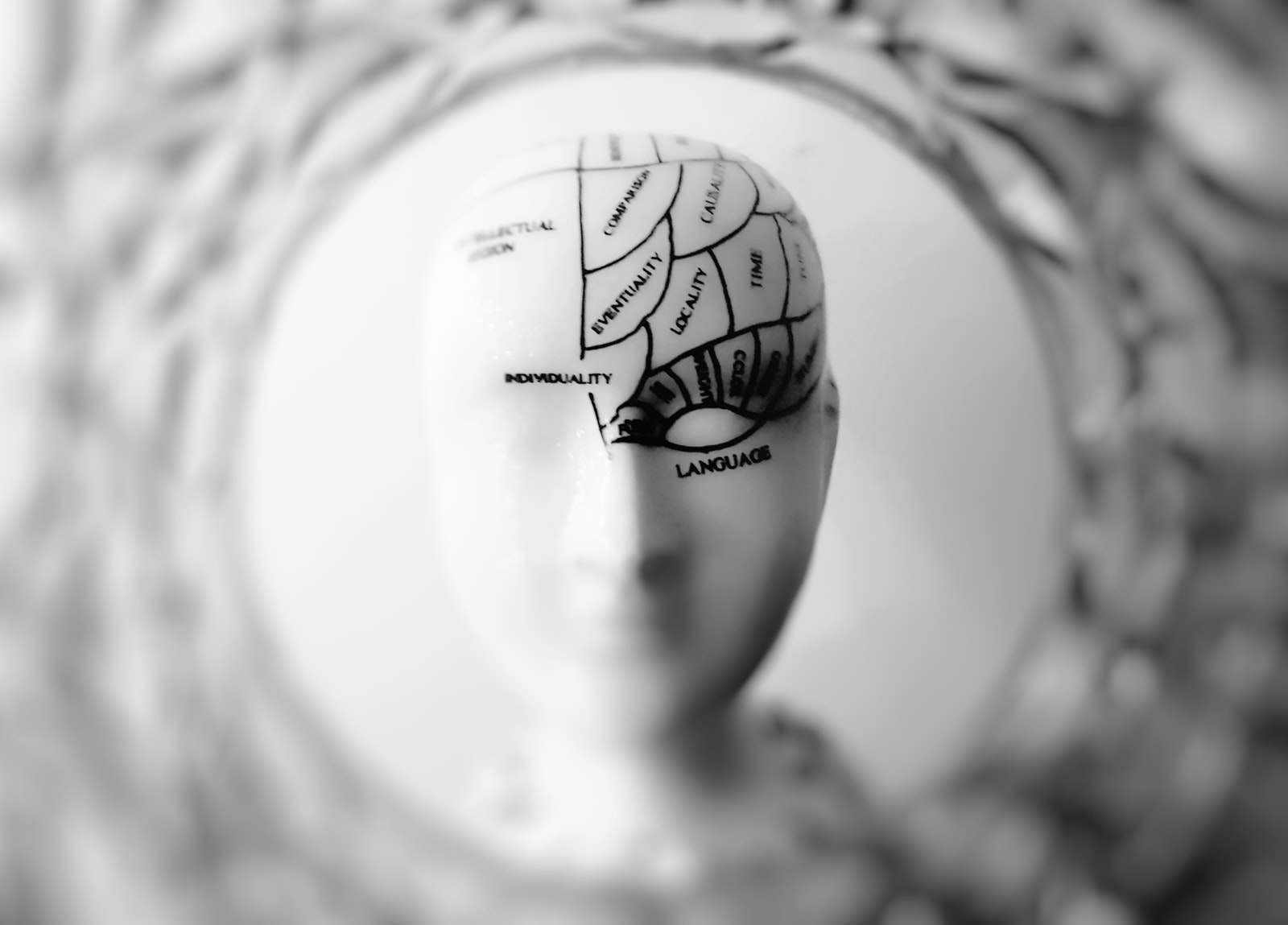Marketing automation is becoming increasingly essential to generate leads these days. Statista has reported that marketing automation is one of the most effective digital marketing methods after content marketing, with an average ROI of $5.44 per dollar spent [1-2]. What’s more? Automation now also has a brain- courtesy of artificial intelligence (AI) and machine learning (ML). Artificial intelligence and machine learning are hugely shaping marketing. With the advent of emerging data sources and the growing availability of ML, marketing is being revolutionised. As such, marketers and researchers still have a lot to learn about the possibilities that AI has to offer in creating & maintaining a competitive business advantage.
Presently, our world is exploding with data. Having such large volumes of data is both an opportunity and a challenge for companies, thereby opening doors for new opportunities in AI and ML. It is predicted that the global ML market is expected to grow at a compound annual growth rate (CAGR) of 38.8% between 2022-2029, from $21.17 billion in 2022 to $209.91 billion by 2029 [3].
This article will talk about:
- What are artificial intelligence, machine learning and marketing automation?
- How is marketing with AI different from traditional marketing?
- Applications of automation in marketing
- Automation adoption trends
- The brain of marketing
- The future of AI in marketing
What are artificial intelligence, machine learning and marketing automation?
Artificial intelligence (AI): It is all about giving machines a brain. The concept of making machines more intelligent and capable of solving problems as humans do.
Machine learning (ML) is a way of solving problems when the computer learns from existing data. It doesn’t follow a set list of rules, making it more flexible in solving new problems in different ways.
Marketing Automation: Marketing automation, or MA, refers to using technology software to automate marketing tasks and workflows. It helps marketers execute marketing strategies more efficiently and with more accuracy.
How is marketing with AI different from traditional marketing?
Traditional marketing ranks low on the evolution chart. Marketing is changing, and automation & AI have a significant role to play in it. Traditional marketing often misses out on the efficiency, pace and insights we can glean from user behaviour and buying patterns. With the help of the right tools, mundane tasks like sending emails can be automated, and with AI-based analysis, things like buying patterns and user behaviour are no longer unknown to marketers. By leveraging machine learning algorithms, companies can make reliable decisions for their operations and use their data best.
Also read: 7 Reasons To Switch To Cloud Analytics For Better Marketing
Along with a wide range of tools that harness the power of AI and ML, cloud-based platforms & apps are creating a paradigm shift in emerging markets. Therefore, understanding the power and benefits of AI is essential to marketing effectively. A combination of AI and ML to the marketing techniques makes your marketing efforts smarter, and a touch of automation makes it faster.
Applications of automation in marketing
Automation is the perfect way to streamline productivity across different responsibilities and give your company a competitive edge. Some common areas seeing automation include:
Marketing: Technological advancements have made marketing strategies easily accessible and automated. Marketing automation tools & platforms can be used to automate various vital tasks such as emails or social media posts. For example, you could set up an email based on when someone completes a form via your website or make a decision about what profile pictures to use for your social media posts by using marketing automation. Some marketers will create a multi-step campaign with staggered emails to reach customers based on their responses and clicks.
Sales processes: Salesforce (a SaaS-based sales intervention tool) empowers your team to focus on calling instead of logging. Conversational AI tools can take on repetitive tasks in the sales process so that your team can focus their energy on the most pressing matters and provide better engagement for your prospects.
Human resources: By utilising HR tools, you can automate multiple aspects of HR. This saves a ton of time. Things like job application processing, interview scheduling, employment offers, onboarding and more are made more accessible with these tools.

Image source: Marketing In Asia research report “Shifting Marketing Priorities”
Though automation is rapidly penetrating every department, marketing is the one leading the league. According to our research, 50% of respondents claimed that much of marketing is fully automated, and 33% said it is partially automated in their organisation. Further, data showed that email marketing had taken the lead in automation, with 95% of the respondents claiming that it had already been fully or partially automated in their organisation, followed by social media marketing (SMM) (92%), lead generation (86%), digital commerce (72%) and content personalisation (67%).
Automation adoption trends
Despite being around for a while, marketing automation still isn’t pervasive in today’s business landscape. According to MIA research, 46% of the respondents had been closely observing the automation market from the sidelines rather than being 100% in. 33% said they have plans to incorporate marketing automation in their organisation shortly, but they are not quite there yet. 54% of the respondents also said that they were not new to it and that it’s been a while since they started using automation in their marketing endeavours.

Image source: Marketing In Asia research report “Shifting Marketing Priorities”
The brain of marketing
The brain of marketing- sounds like something right out of a sci-fi movie! But it’s true. Marketing is gradually growing a brain of its own; rather, we are providing it with one. Over the last few decades, automation has impacted every industry, from ATMs to assembly lines to healthcare systems.
By being at the forefront of automation, Artificial Intelligence & Machine Learning have birthed something called “intelligent automation” that is changing our understanding of how humans and machines interact. This combination of automation, cloud, and AI / ML equals predictive personalisation, the brain of marketing. The growth of business giants like Netflix
and Starbucks are examples of what this combination can do for the growth of your organisation, and predictive personalisation is the answer to that.
Also read: Marketing In The Metaverse: A Digital Odyssey For Brands
Conclusion – The future of AI in marketing
Twenty years ago, AI writing tools were seen as science fiction. Today, they can transcribe your content into various formats and write articles independently. AI is already doing a great job at automating repetitive tasks and tackling tedious work. It is an excellent way to handle productivity across various tasks and give your company a competitive edge.
AI and ML are becoming hugely popular in the media world. They will soon be used to take new ideas to the next level, surpassing what we have seen so far. New ways of telling stories have emerged, and they’re just getting started. That said, digital marketing is undergoing a revolution, and we are all integral to it. The use of AI and automation will transform this industry for good.
Marketing becoming smart and intelligent is a paradigm shift in marketing. To know more about such shifts, download the report.
Endnotes:
- https://www.statista.com/statistics/190858/most-effective- online-marketing-channels-according-to-us-companies/
- https://nucleusresearch.com/research/single/marketing- automation-returns-5-44-for-every-dollar-spent/
- https://www.fortunebusinessinsights.com/machine-learning-market-102226

















